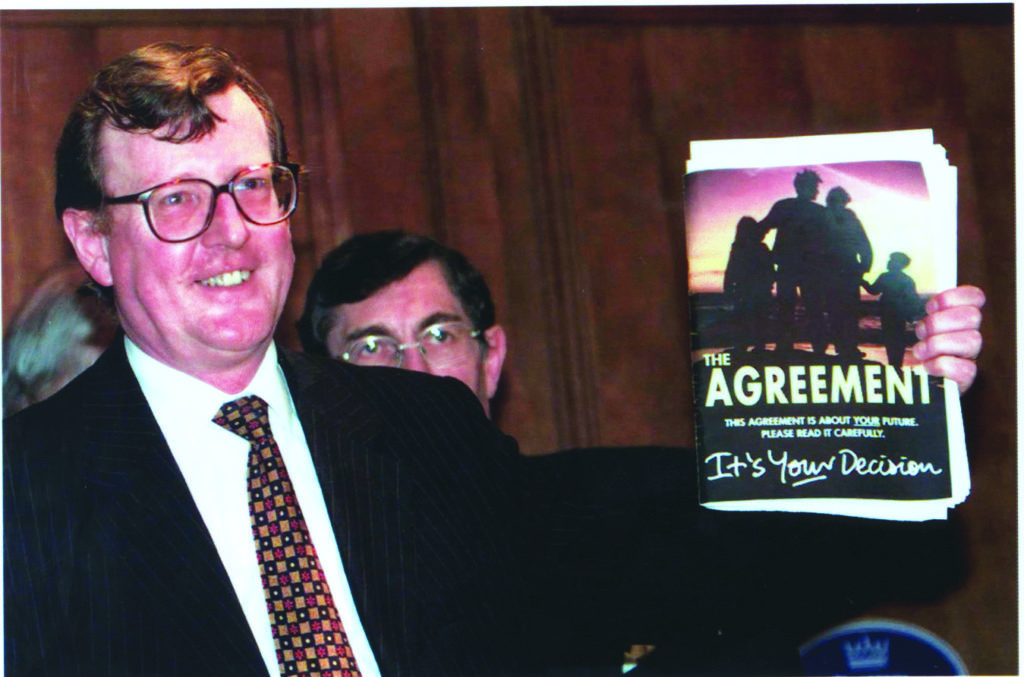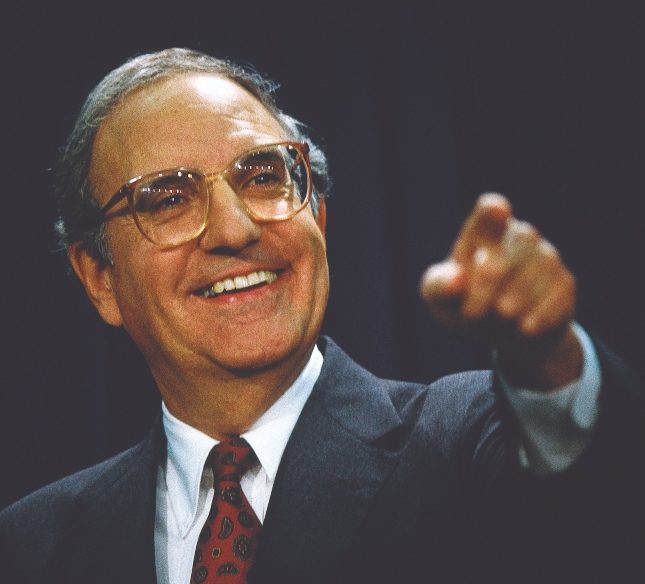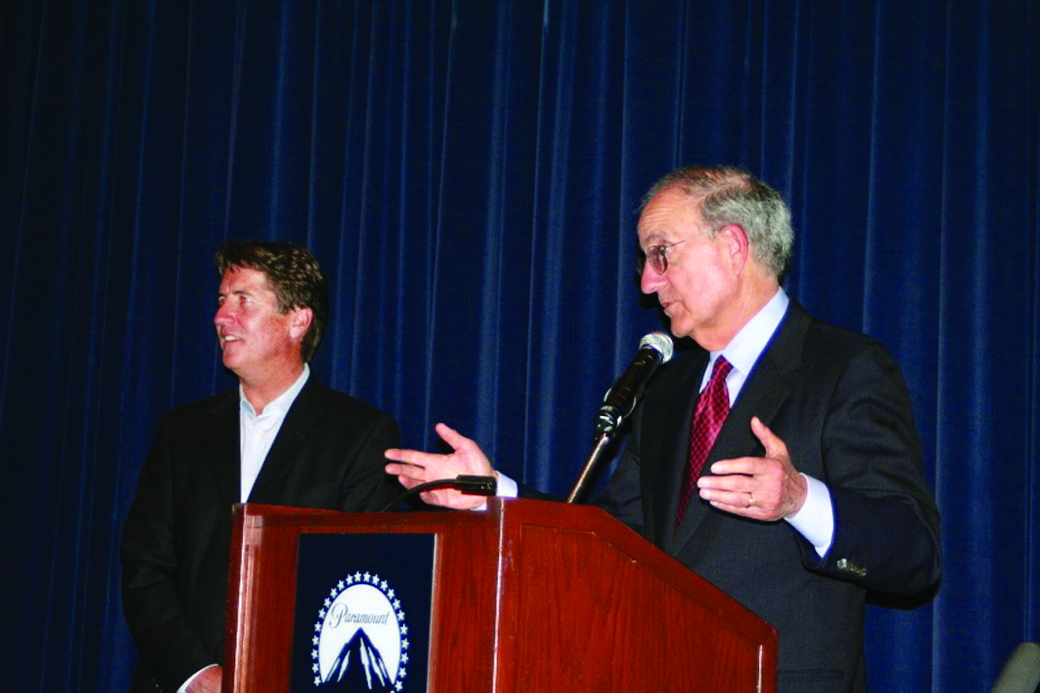Reflections on the Good Friday Agreement, 25 Years On
Q&A with Kelly Candaele
KC: Perspectives sometimes change with time. Looking back from 25 years, are there any perspectives about your experience or the Good Friday Agreement that have changed for you during that period?
GM: On the day the Agreement was reached I praised the men and women who wrote and signed it. But I also said that it would be necessary for future leaders to uphold and extend their work. And so it has. Since life for all human beings and all human societies involves change, the current leaders confront new challenges and modern versions of old issues. What has not changed is the need for political leaders with strength, courage and vision.
KC: In general, why was the United States so important to the peace process?
GM: The British and Irish governments had worked for decades to bring to an end the political violence in Northern Ireland; they deserve great credit for ultimately doing so. But President Clinton also deserves credit. He was the first American president to commit the US to full and active support of that effort. He sponsored a White House conference on investment in and trade with Northern Ireland, to help provide a strong economic foundation for the peace talks that were to take place. He was the first president to visit Northern Ireland while in office, the first to appoint a U.S. representative to Northern Ireland. Those and other actions on his part provided encouragement and support for the governments of the UK and Ireland, and to the political parties of Northern Ireland.
KC: What is your sense of the new generation of political leaders in Northern Ireland today? How should they proceed?
GM: Because of the passage of time, I don’t know all of the current leaders of Northern Ireland. But their challenge is no different from that faced by all political leaders: they must do what is necessary to secure the safety and well-being of the people they represent; to preserve peace and to encourage opportunity and broadly shared prosperity.

KC: What is the difference between securing peace and securing real reconciliation between people? Or is this distinction important?
GM: As Senate Majority Leader I once visited a town in Bosnia that had been inhabited by both Serbs and Croats, but then had been devastated by the ethnic conflict that accompanied the breakup of what had been the country of Yugoslavia. I asked the mayor whether Serbs and Croats would ever again be able to live side by side in peace. He said “We will repair our roads and buildings long before we repair our souls.” That is the fundamental challenge in all divided societies; it is a long and slow process. But it is possible, over time, if there are leaders who genuinely believe in and seek reconciliation.
KC: Many commentators write about the “lessons” of the Good Friday Agreement. You were also an envoy to the Middle East which seems to be heading in the opposite direction of Northern Ireland. Are there really “lessons” that are transferable to other places of conflict in the world?
GM: No two conflicts are identical. The meaningful lessons that are transferable are: No matter how old or violent the conflict, no matter how deep the hostility, no matter how many people have been killed or injured, an honorable peace is always possible, and preferable.
KC: What is your special connection to Ireland – either emotionally or through your family?
GM: My father’s parents were born in Ireland. Just before the end of the nineteenth century, they became part of the large human tide that fled famine and poverty in Ireland for what they hoped would be freedom and opportunity in America. They ended up in Boston, where my father was born. Sadly, he never knew his parents and was raised in an orphanage. He was adopted by an elderly childless couple from Maine who were not Irish. He left school at the age of ten and began a long life of hard work and ended up as a janitor at a local school. My mother was an immigrant who could not read or write English; she worked for a half century on the night shift in textile mills. They were very poor. But they had a dream that sustained them during the hardest times: that their children would have the education and opportunity they never had. And we did: all five of us graduated from college and have lived lives that were completely beyond our parents’ imagination. Sadly, my father had no sense of his Irish heritage; I never heard him say the word “Ireland.” So, for me to be able to spend many years working in the land of my father’s family was an opportunity, not a burden. Many people have thanked me for my work in Northern Ireland but it is I who should be, and am, deeply grateful for having been able to get a sense of the heritage my father had, but never knew or understood.



Leave a Reply